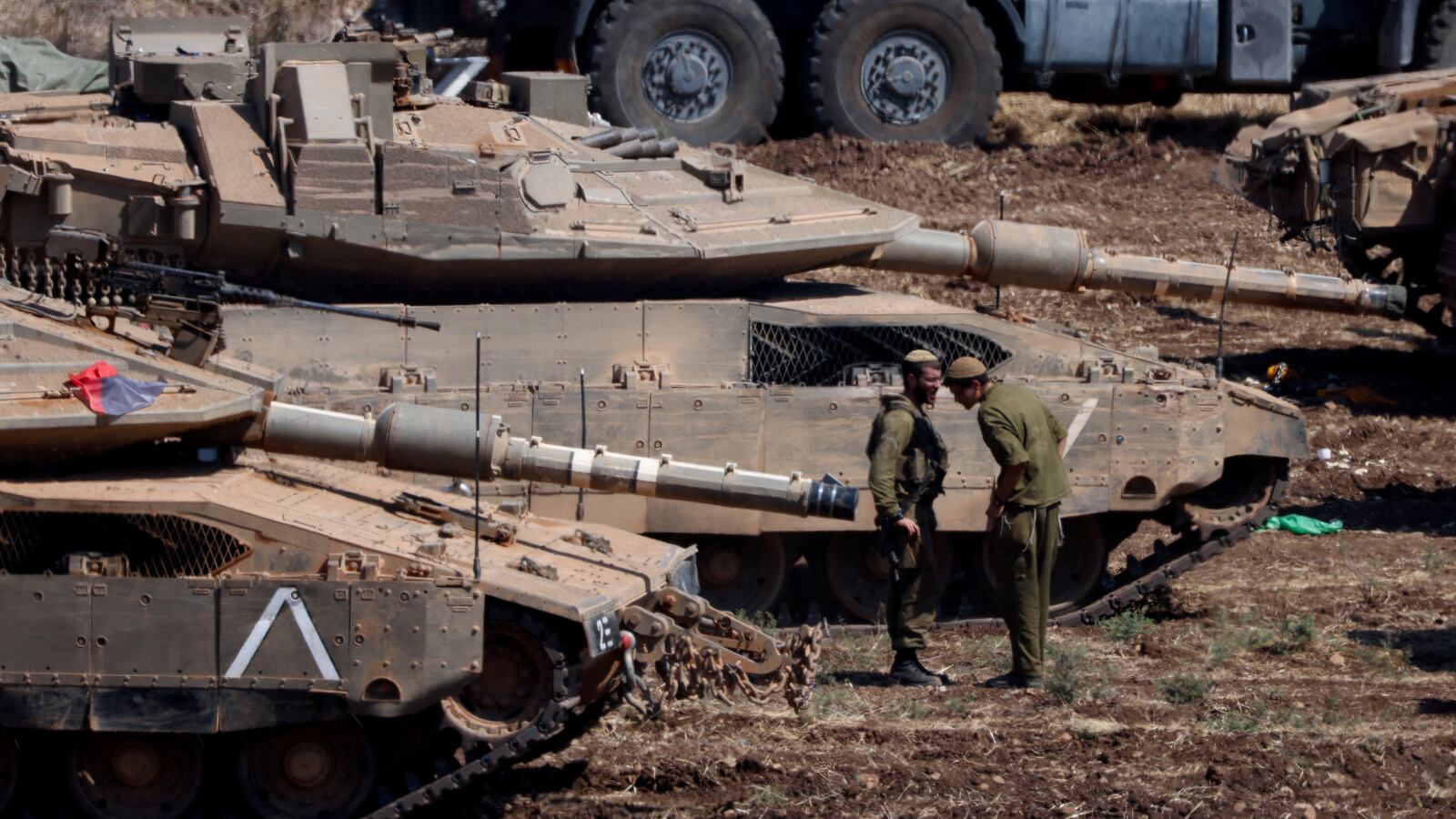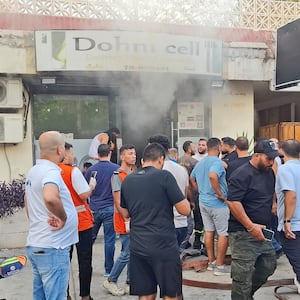Israeli ground forces entered southern Lebanon on Monday evening, the Israeli Defense Force confirmed, in a significant escalation in the country’s conflict with Hezbollah militias that has been boiling for weeks.
“In accordance with the decision of the political echelon, a few hours ago, the IDF began limited, localized, and targeted ground raids based on precise intelligence against Hezbollah terrorist targets and infrastructure in southern Lebanon,” the IDF confirmed in a statement. The military said these were located in villages close to the border with Israel.
“The IDF is operating according to a methodical plan set out by the General Staff and the Northern Command which IDF soldiers have trained and prepared for in recent months,” the statement continued.
The country’s air force and artillery are also supporting the incursion with targeted strikes in the region. The IDF said the operation in Lebanon will continue “in parallel to combat in Gaza and in other arenas.”
“The IDF is continuing to operate to achieve the goals of the war and is doing everything necessary to defend the citizens of Israel and return the citizens of northern Israel to their homes,” it said.
The Lebanese military pulled its own troops back from border checkpoints late on Monday before the incursion began, Reuters reported.
The ground raids come almost one year after Hamas launched a surprise attack against Israel on Oct. 7. Israel’s ongoing war against the Palestinian Islamist group has killed over 40,000 Palestinians, according to the Gaza Health Ministry.
Soon after Israel’s war in Gaza began, other militant groups allied with Hamas began launching attacks against Israeli targets. In Yemen, the Houthis began targeting Israel-linked cargo ships traveling through the Red Sea. Hezbollah, the Shia political party and militant group based in southern Lebanon, began firing missiles and artillery into northern Israel—occasionally striking civilian communities.

Smoke rises after an airstrike on a Beirut suburb early on Tuesday morning.
Amr Abdallah Dalsh/ReutersThe Israeli military has been escalating their protracted conflict with the militant group in recent weeks, reportedly rigging thousands of pagers used by Hezbollah members to explode in a surprise attack earlier in September.
Hezbollah responded with more rocket barrages into northern Israel—which were met with Israeli airstrikes deep into the heart of Hezbollah-controlled territory, including parts of Lebanon’s capital Beirut. At least 1,000 people have been killed in the strikes so far, CBS News reported.
On Saturday, an airstrike killed Hezbollah’s longstanding secretary-general, Hassan Nasrallah, the Israeli military claimed.

The aftermath of an Israeli airstrike on the southern Lebanese village of Khiam on September 19.
GettyIran, whose government backed Hamas, Hezbollah, and the Houthis, vowed to respond to the killing of its former ally. “There is no doubt that this horrible crime committed by the Zionist regime will not go unanswered,” Iranian Foreign Minister Abbas Araqchi said in a statement on Sunday.
In April, Iran launched about 300 drones and missiles at targets within Israel in retaliation for an Israeli strike on the Iranian consulate in Damascus, Syria. Most of the drones were intercepted before reaching their targets.
In an English-language video, Israeli Prime Minister Benjamin Netanyahu addressed the Iranian people offering a veiled warning against further engagement from the country’s government.

Mourners gather in the streets of Tehran, Iran for a memorial honoring Hezbollah general-secretary Hassan Nasrallah.
Majid Asgaripour/Reuters“There is nowhere in the Middle East Israel cannot reach,” Netanyahu said. “There is nowhere we will not go to protect our people and protect our country. With every passing moment, the regime is bringing you, the noble Persian people, closer to the abyss.”
“When Iran is finally free, and that moment will come a lot sooner than people thing, everything will be different,” Netanyahu claimed, insisting that peace will come after regime change in the country.







